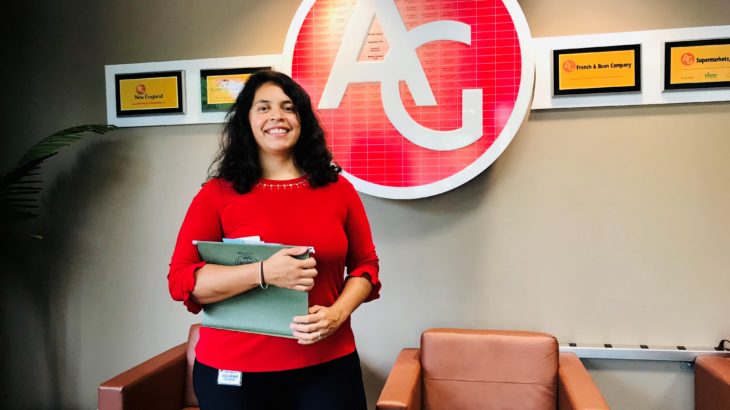Ten years ago, Juliana Duran was working the front desk at the University of Utah campus gym when she received an email with the subject line, “Do you have an idea?”
The email was from the Lassonde Entrepreneur Institute, advertising the program, Foundry, which helps students turn ideas into reality. Duran had been thinking about starting a sticker business, so she decided to apply. This would ignite Duran’s entrepreneurial career. When Duran was 25, she went on to become the associate director of PandoLabs, an organization that brings entrepreneurs together. She has launched multiple businesses besides the sticker business. This includes Enspire Hub, which Duran established in the fall of 2018 to help people bring their ideas to reality. Most recently, Duran was hired by Associated Grocers of New England to help with their talent acquisition and HR.
“It just shows you how your life can change,” Duran said. In high school, she was inspired by her dad’s entrepreneurial spirit, but she didn’t know how to get started. The Lassonde Entrepreneur Institute answered that question.
When Duran walked into the Foundry offices, she was the only woman and the only person of color, but she quickly met mentors who would guide her through launching her business and beyond. The concept was that coaches would guide the cohort of 30 entrepreneurs to create a 90-day business plan. Duran tracked her progress with mentors, but they made it clear that she was in charge.
“They don’t treat you like a student, they treat you like a founder that they see in you,” Duran said.
Rob Wuebker, a professor in the Department of Entrepreneurship & Strategy at the University of Utah’s David Eccles School of Business, started the Foundry and mentored and encouraged Duran throughout her time there. For example, Duran once emailed 100 potential customers about her company’s services. She received two orders, which she thought wasn’t worth the effort. But Wuebker told her that a two percent conversion rate is highly impressive when it comes to email marketing.
“Rob is the person in the business world that I always strive to be,” Duran said.
Another mentor who stood out to Duran was Rob Bell. While Wuebker helped Duran with the inspiration and encouragement, Bell helped her with the numbers. Duran worked with her co-founder and Bell to have two-hour brainstorming sessions, with notes covering the whiteboard by the end. Bell particularly helped Duran with the sticker business; he had them assess if going door-to-door was cost efficient, and he helped them realize that there was a better market for banner production. In fact, Bell was Duran’s first investor. She received an order for 20,000 stickers, which her small machine simply couldn’t handle. She needed to purchase an upgraded machine, but she was an undergraduate student with very little cash. Bell pulled out a checkbook and gave her a loan for $1,200.
Duran went on to become a mentor for other Foundry cohorts for five years. In addition, she got the job at PandoLabs because the University of Utah collaborated with them previously.
In her spare time, Duran loved going to the Lassonde Entrepreneur Institute’s Get Seeded events, in which entrepreneurs pitch their ideas to student judges, who then award funding to the best ideas. Duran jokes that she went for the free pizza, but she stayed to hear other entrepreneurs talk about their ideas. Then, she decided to pitch her own ideas, for which she ended up winning funding.
Her ideas included Essentials Express, which was a grocery delivery service way before DoorDash. Duran laments that this turned out to be a billion-dollar idea, but “Like every entrepreneur, I got distracted with another idea,” Duran said.



